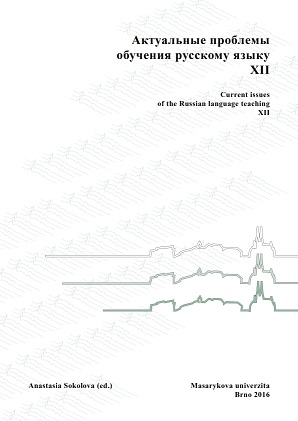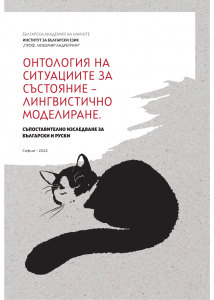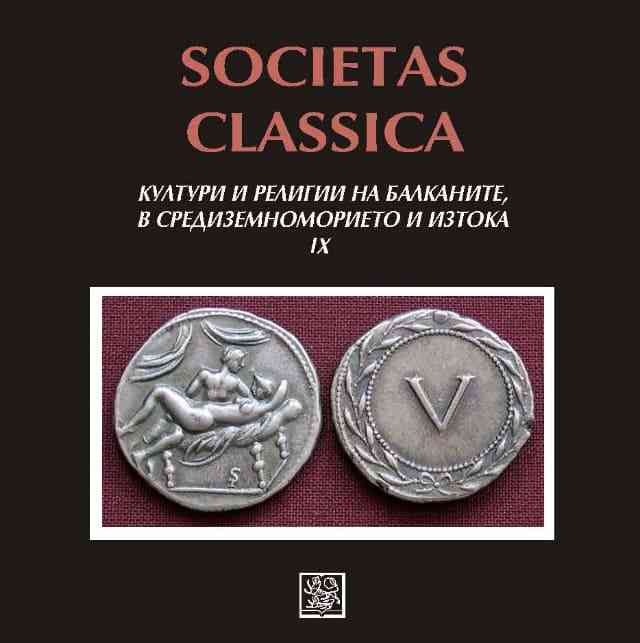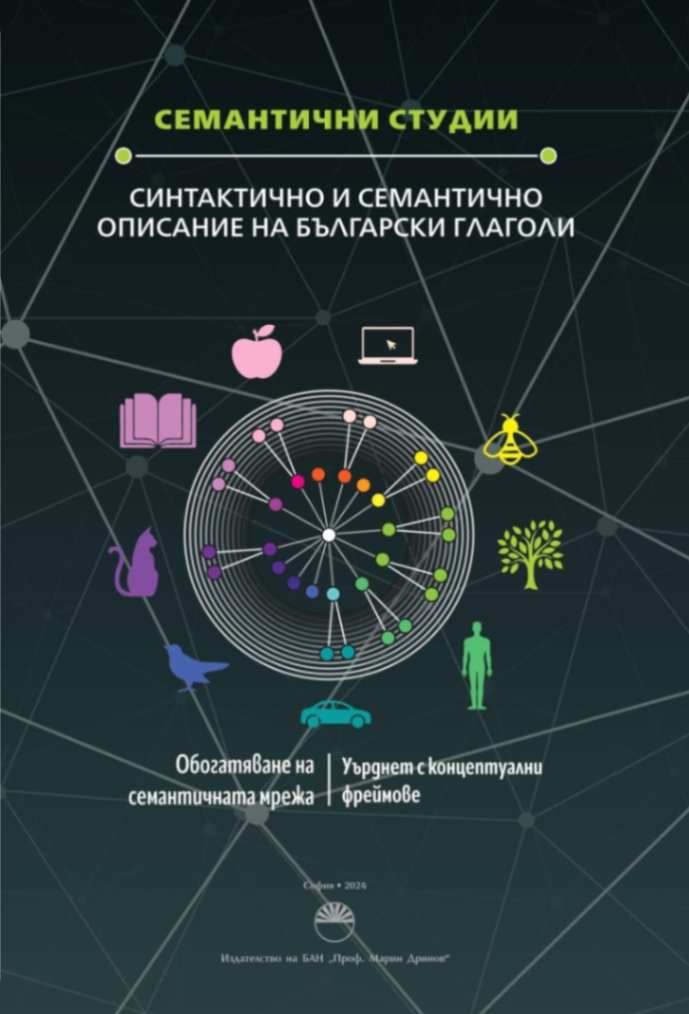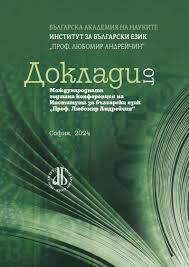Author(s): Yovka Tisheva,Marina Dzhonova / Language(s): English
Publication Year: 0
This study deals with the syntactic features of predicates describing stative eventualities. We present an overview of the possibilities for syntactic realization of verbal arguments within a framework of a semantic (thematic) classification of Bulgarian verbs based on their primary lexical meanings. Following the main principles of Role and Reference Grammar (RRG), we test the hypothesis that predicates belonging to a given thematic group have similar syntactic behavior. The analysis is focused on one-, two- and three-place predicates. Verbs such as седя (sit), лежа (lie), стоя (stand), спя (sleep), блестя (shine), мириша (smell) have one-argument structure. Their single argument occupies the subject position. Two-place predicates are represented by verbs from two subgroups: predicates with a subject and a direct object, e.g. обичам (love), харесвам (like), виждам (see), чувам (hear), чувствам (feel), усещам (sense), желая (wish), искам (want), мразя (hate), помня (remember), and predicates with a subject and an indirect object, e.g. вярвам (believe), надявам се (hope), нуждая се (need), тревожа се (worry), жадувам (crave), радвам се (be happy), вълнувам се (be excited), притеснявам се (worry), гордея се (be proud), срамувам се (be ashamed), плаша се (be afraid), страхувам се (fear). Besides these two groups of predicates, we also consider the possibility for some of the verbs to have three-argument realization. With знам (know)-type verbs, the direct object must be expressed and the indirect object may remain syntactically implicit, while with мисля (think)-type verbs the indirect object has to be represented overtly, but the direct object does not. The alternation of prepositions is also discussed in the text.This study deals with the syntactic features of predicates describing stative eventualities. We present an overview of the possibilities for syntactic realization of verbal arguments within a framework of a semantic (thematic) classification of Bulgarian verbs based on their primary lexical meanings. Following the main principles of Role and Reference Grammar (RRG), we test the hypothesis that predicates belonging to a given thematic group have similar syntactic behavior. The analysis is focused on one-, two- and three-place predicates. Verbs such as седя (sit), лежа (lie), стоя (stand), спя (sleep), блестя (shine), мириша (smell) have one-argument structure. Their single argument occupies the subject position. Two-place predicates are represented by verbs from two subgroups: predicates with a subject and a direct object, e.g. обичам (love), харесвам (like), виждам (see), чувам (hear), чувствам (feel), усещам (sense), желая (wish), искам (want), мразя (hate), помня (remember), and predicates with a subject and an indirect object, e.g. вярвам (believe), надявам се (hope), нуждая се (need), тревожа се (worry), жадувам (crave), радвам се (be happy), вълнувам се (be excited), притеснявам се (worry), гордея се (be proud), срамувам се (be ashamed), плаша се (be afraid), страхувам се (fear). Besides these two groups of predicates, we also consider the possibility for some of the verbs to have three-argument realization. With знам (know)-type verbs, the direct object must be expressed and the indirect object may remain syntactically implicit, while with мисля (think)-type verbs the indirect object has to be represented overtly, but the direct object does not. The alternation of prepositions is also discussed in the text.
More...


